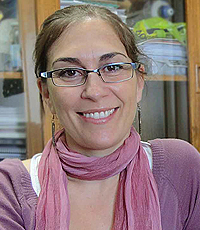This line studies land use change, its impacts on ecosystems, and its relationship with climate change as a basis for designing resilient landscapes.
For the 2024-2025 period, the line seeks to deepen its research on evaluating the main impacts of land use and land cover change on biodiversity, water yield, carbon emissions due to fires, and carbon capture by native forests and peatlands. Work is also being done to analyze how different socio-ecosystems are affected by and respond to climate risks (e.g., hyper-droughts or heat waves) and the associated changes in fire regimes.
At the same time, the line will continue its study on the deterioration and eventual collapse of sclerophyllous forests in central Chile due to climate change and the associated increase in fire occurrence. It will investigate how to reduce these risks through the design of heterogeneous and resilient landscapes via ecological restoration, combining forest plantations, native forests, shrublands, agriculture, and improved forest management schemes.
Another line component is the design and proposal of actions from the perspective of nature-based solutions to improve carbon capture, biodiversity, and water provision as ecosystem services, evaluating these actions’ economic costs and benefits and considering policy and governance scenarios.
Review the research achievements of this line in our institutional report.












